Developing Community Leaders: Race Matters

Initiatives at JACSW are helping individuals from communities of color, especially Black communities, acquire the knowledge and skills needed to lead social services and development in their community.
At the forefront of conversations around racial justice have been discussions of how to address the underrepresentation of men of color in social work education and social services leadership positions. JACSW leadership have made these topics a focus, as well as how the College can substantively contribute to the strengthening of community-based social services and community development. The College has, therefore, prioritized the establishment of new initiatives that further strengthen and diversify the MSW program, advance the College’s mission, and enhance workforce development and capacity building in marginalized communities.
Promoting Racial Equity in Social Work Leadership: The We Are Men Program
Now in its second year, the college’s We Are Men (WAM) program recruits Black men with a demonstrated dedication to addressing the needs of impoverished communities, and provides financial assistance and other forms of support to aid them in completing their graduate degree in social work. Upon graduation, they are prepared to provide leadership for health and human services agencies and organizations.
The Need for Black Leadership in the Community
“Looking back on my childhood, I didn’t see examples of African American men in leadership. I didn’t even see Black quarterbacks in football. But when I went to the Boys Club on the West Side of Chicago, I saw Black men in leadership and that was what I looked to. That was important for me,” says alumnus Marvin Lindsey, MSW ’06. “There’s a myth that Black people are not good leaders, or don’t have the capacity to lead, when we know the reason is that Black people usually don’t have the opportunity to lead.”
Lindsey facilitates the WAM program, working in partnership with the program participants and acting as a guide and mentor during their time in the MSW program. Based on his own experiences growing up in Chicago, the program has great personal significance. “This program is really important to me, and I want to devote the rest of my professional career to this effort of recruiting African American men into leadership positions,” Lindsey says. “These men might even run for office, run a political campaign. That’s a very strong possibility. And it has great impact for the community, for young guys who are in grammar school now, seeing Black men leading gives them a lot of hope for their own future.”
Why "We Are Men"?
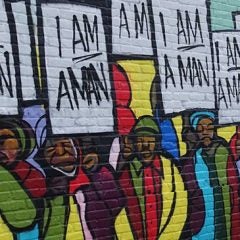
Why “We Are Men”?
The program’s name echoes the 1968 rallying cry “I Am a Man” used by African American sanitation workers in Memphis, whose protest for racial equity and dignity was sparked by the deaths of two Black workers. Their calls for equity intensified after the assassination of Dr. Martin Luther King, Jr., and ended in a settlement which included union recognition and wage increases. The We Are Men program honors this legacy by advancing racial justice and dignity for men living and working in contemporary Black communities.
The Benefit to Communities and Social Service Provision
The Benefit to Communities and Social Service Provision
For Dean Creasie Finney Hairston, the positive impact of WAM begins in the classroom but extends far beyond. About the need to increase enrollment of Black men in the college’s MSW program, she says, “The absence of African American males in our classes was concerning, and not only from a perspective of representation. The silence of their voices in discussions about social conditions and programs was noticeable to both instructors and students. For a program that not only values, but depends on diversity and the inclusion of multiple perspectives, this needed to be addressed.”
That void has also been a concern for service agencies providing social services in communities with poor and marginalized populations. In their 2007 report Institutional Racism and the Social Work Profession: A Call to Action, the National Association of Social Workers noted that executive leadership and management positions are occupied predominantly by white people, even in organizations that serve predominantly populations of color. And the situation now is little improved. “Many agency leaders have expressed a desire to have more Black men in positions of leadership, which can bring many benefits to both agencies and the communities they serve,” Hairston says.
Marvin Lindsey is in whole-hearted agreement and thinks that having Black men not only as leaders but as practitioners can make a difference, especially for younger males whose experiences have led them to a position of mistrust. “If a young African-American male is seeking support, it could be beneficial to have a Black person as an option for them,” he says. “It is likely that an African-American practitioner could be more genuinely empathetic to their experiences than a non-Black person would be.”
He also thinks that having more Black people in leadership positions will help guide the provision of social services with greater basis in cultural and historical context, and more authentically reflect the needs of the community. “Cultural insensitivity and implicit bias on the part of practitioners in the past led to misdiagnosis with, for example, Black children receiving a more severe mental health diagnosis,” he says. “Trained practitioners who are from the community can help lead to much greater health equity. In the current environment people are talking a lot about equity, and I think WAM will bring more equity into social work and the realm of leadership for Black men.”
Although WAM and it’s sister program BAM (see below) are new to the college, they are already showing success and year-over-year growth, with a total of 19 African American men enrolled in the college’s MSW program, 15 of whom were enrolled in fall 2020.
Spotlights on the WAM and BAM programs
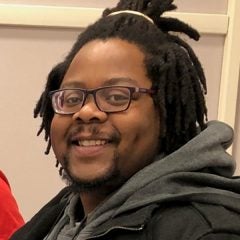
Spotlight on WAM Participant David Banks
David was always looking for ways to improve the Cleveland community where he grew up, volunteering his time to plant gardens or serve on neighborhood clean-up projects. “I saw so much dysfunction in my environment growing up, of people stuck in a loophole, feeling hopeless and not knowing how to better themselves,” says Banks. “I wanted to break the cycle, make a difference, accept responsibility and be a resource. On college tours in ninth grade I saw examples of what other Black leaders have done and it gave me a sense of what I could do.”In the WAM program, David is already manifesting his skills as a leader and serves as co-president of the program. “There’s no telling where I’d be without We Are Men,” Banks says. “It’s prepared me to do the work needed to ensure vulnerable populations, especially Black men, have the resources needed to grow and create change. It is fighting for social justice in making sure there is opportunity for everyone to have an equal chance and be treated fairly.”
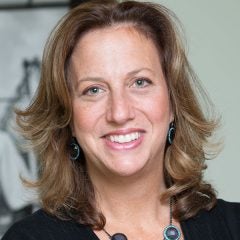
BAM: A Community Partnership
In fall of 2020 the College partnered with the community organization Youth Guidance and their Becoming a Man® (BAM) program to support men of color in obtaining an MSW degree, as they continue their employment as counselors at Youth Guidance, providing crucial social services in the community. Below, JACSW alumnus Michelle Morrison, MSW ’90 and CEO of Youth Guidance, talks about how effective the partnership has been.“When I first met with Dean Hairston, it was crystal clear we were completely aligned on the common goal to have diverse voices informing and leading the field of social work. It was also clear that we wanted to take immediate action, and that is what we’ve done. We currently have six BAM counselors finishing-up their first year of JACSW’s MSW program and the impact has already been tremendous.
We’ve got this amazing staff, rich with experience. They have youth development and clinical expertise, and they have the lived experiences that make them credible messengers, able reach young people in ways that are transformative. What they don’t have, however, is the benefit of a graduate education and a network of social workers.
Greater equity in educational access to opportunity will ultimately help disrupt systems that aren’t working and will help inform policy to remove barriers for the next generation, resulting in increased Black representation and leadership in social work.”
Michelle Morrison, MSW ’90
Chief Executive Officer, Youth Guidance
Addressing the Racial Injustice of Mass Incarceration: Academic Resource Program
For people returning to their community after having been incarcerated, the odds are stacked against successful reentry. They may experience barriers to nearly everything they need to successfully make that transition, including basic needs such as housing, health care, and transportation. They are also effectively barred from social and economic advancement because of barriers to accessing education and employment. And given our nation’s unjust policies in policing, arrests, convictions and sentencing, these barriers are disproportionately experienced by people from poor Black and Latinx communities. For many returning citizens of color, the lack of opportunity, healthy support networks, and dignity and self-worth leaves them disconnected from their community and vulnerable to recidivism.
A Path to Independence and Social Impact
In January of 2021, the Jane Addams Center for Social Policy and Research (Policy Center) launched the first cohort of its Academic Resource Program (ARP). The program addresses the injustice of mass incarceration and its disproportionate impact in communities of color by supporting individuals with justice system involvement in the attainment of a college degree. Leveraging a network of community-based services and partnerships, ARP provides holistic support to help returning citizens bridge the gap between incarceration and higher education, providing access to socioeconomic opportunity and reducing recidivism. The program has received funding from the Illinois Community College Board (ICCB) to help achieve these goals.
Joseph Strickland, PhD ’08, Senior Researcher at the Policy Center, says the intent of the program is to support people who have actually served time in jail or prison. He says, “We often use the phrase ‘justice system involvement,’ but for ARP we’re really talking about people who have spent at least a couple years in jail or prison.” Strickland goes on to explain that for many people, lack of education is a prime reason they found themselves incarcerated to begin with. “They may have attended schools with poor educational methods, or somehow they didn’t connect and dropped out, or they performed so poorly in school that they didn’t want to continue their education,” he says. “ARP is here to help people in that situation, people who are returning to their community and need a network to support them in attaining a college degree.”
Strickland notes the critical need to connect returning citizens to a healthy support network that can help translate into socioeconomic autonomy and success. “If you come from a community and a social network where most members are living unhealthy lifestyles, then your chances of recidivating are higher when you return to that environment,” he observes. “By connecting people to a more positive and healthy social network, they’re provided with social capital that helps them learn more about what opportunities exist in college, as well as after college on the job market.”
The ARP cohort, dubbed Urban Scholars to reflect the impact the program will have for individuals and urban communities, consists of nine people who are pursuing undergraduate and graduate degrees at UIC and other Chicago area institutions. “The impact of our Urban Scholars will extend beyond their own individual achievement and into their communities. Some are getting degrees in law, social work, and inner city studies,” says Strickland. “The education they receive will help them provide leadership and become a resource for their community.”
College education is not always an immediate goal for returning citizens, some of whom are motivated to obtain employment and achieve financial independence as soon as possible. For these people, ARP is working with community partners to help them get their GED or access vocational training. “With our community partners we’re able to help people through workforce development services, job and career readiness services, and assistance with their resume or interviewing skills,” Strickland says, adding that the Policy Center is planning virtual events to help connect people to these services, and inform them about the workforce development and educational opportunities available to them. “Some people may not want a college degree now, but it could be an option for them in the future. We want ARP to be a full-spectrum and long-term solution not only for returning citizens, but for their communities,” he says.
Beyond Ban-the-Box: Understanding and Reforming College Admissions Practices
Beyond Ban-the-Box: Understanding and Reforming College Admissions Practices
Terrell Campbell serves as director of the ARP program, and he is also undertaking a survey of policies at many institutions of higher education in the Chicago metropolitan area, as they relate to people with a criminal background. He is examining admissions policies, practices and procedures, both formal and informal, and is gathering relevant information from institutional offices of admissions, housing and diversity.
Campbell says initial findings of the survey reveal considerable variation from institution to institution. Many have a checkbox on their application, some do not, and some lack a checkbox but ask about criminal background during the admissions process. In making enrollment decisions, an institution might consider the kind and severity of the offense, and whether or not there are multiple offenses. Returning citizens may also face barriers with financial aid, or be excluded because of certain drug crimes. And at some institutions, failure to disclose a criminal background may result in dismissal.
“We want to be able to provide practical guidance to returning citizens on how best to navigate the college admissions process,” Campbell says. “When it comes to being asked about their background, a returning citizen can experience some trauma simply by being asked that question, having to think about and relive the experience. We don’t want someone to see the checkbox on one application and just assume that every school does that.” Strickland agrees, adding, “One of the main points of ARP is to provide situational capital to guide people through these processes, while applying, while enrolled and through graduation. There is a saying: If you know more you can do more.”
A longer-term goal of this research is to facilitate policy reform around issues of access to education for returning citizens. “Much of the work we do at the Policy Center is focused on policy reform to achieve justice and equity,” Strickland says. “It’s important for elected officials and university administrators to understand the impact of their policies and the ways in which they can function as barriers to success for this population. These people already face so many barriers, why make it any harder for them to achieve success?”
Meet the First Cohort of Urban Scholars
Meet the First Cohort of Urban Scholars
The individuals shown below comprised the inaugural Urban Scholars cohort of Academic Resource Program, which was launched this past January, 2021.
They are pursuing undergraduate and graduate degrees at UIC and other Chicago area institutions, in majors such as law, business and inner city studies, that will prepare them for contributing to and providing leadership in their communities.
Angalia Bianca
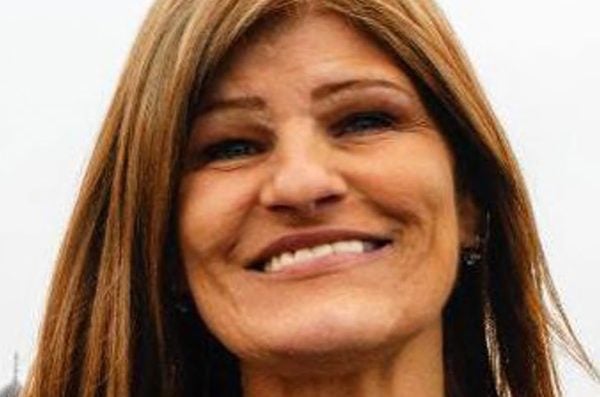
Angalia Bianca
Kevin Blumenberg
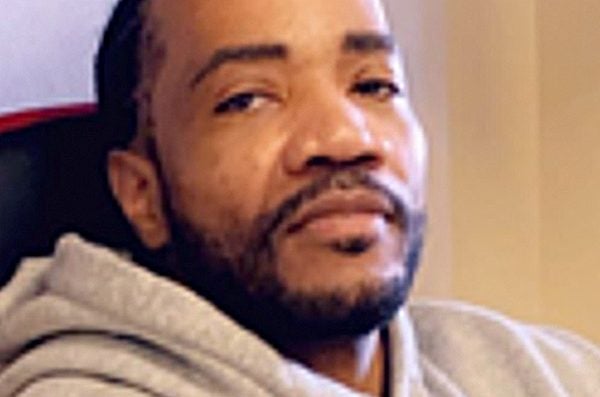
Kevin Blumenberg
Celia Colon
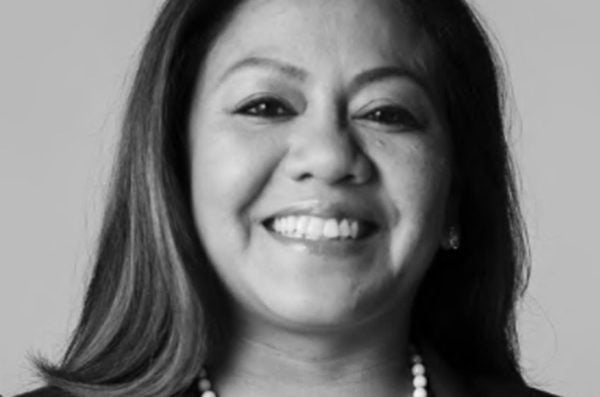
Celia Colon
Eroica Del Real

Eroica Del Real
William Edwards
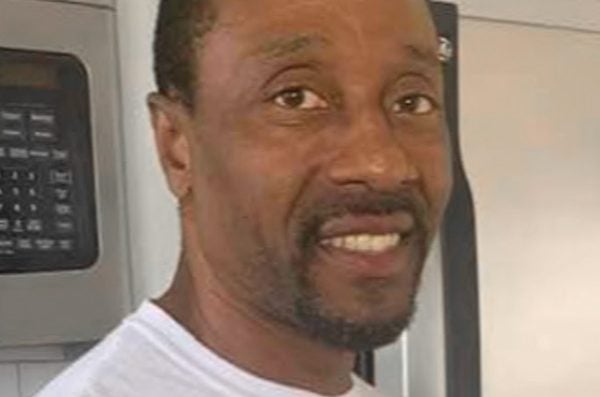
William Edwards
Maria George
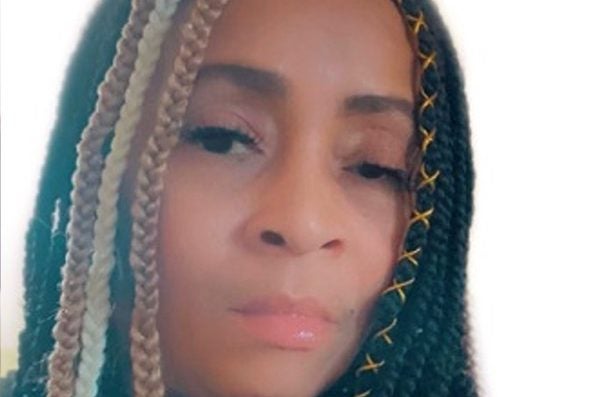
Maria George
Mary Gonzalez
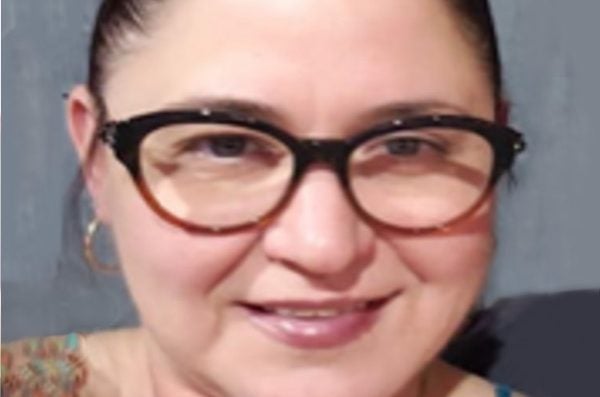
Mary Gonzalez
Tomas Ortiz
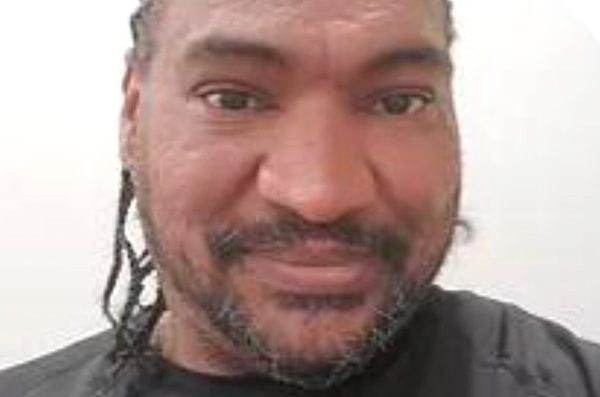
Tomas Ortiz
Claricia Wilmer
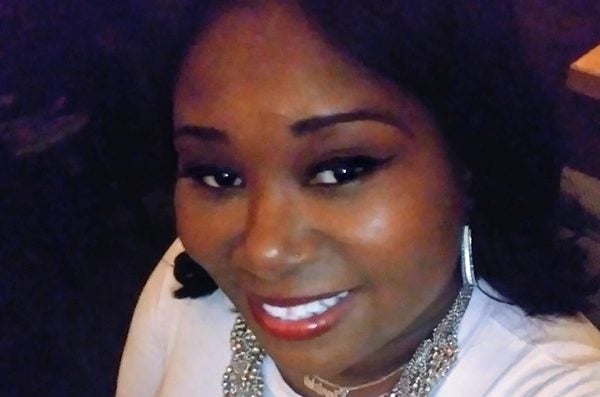
Claricia Wilmer